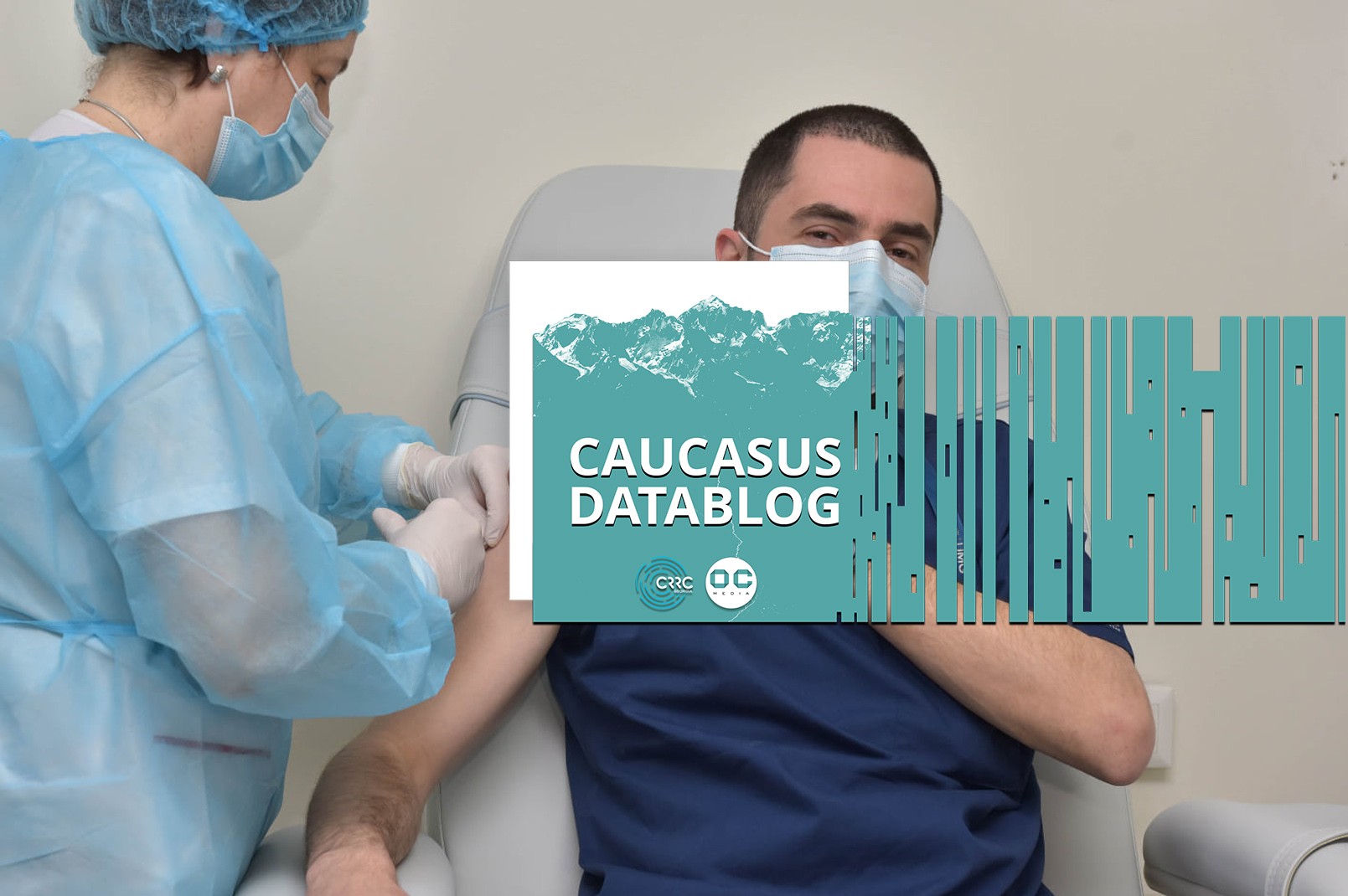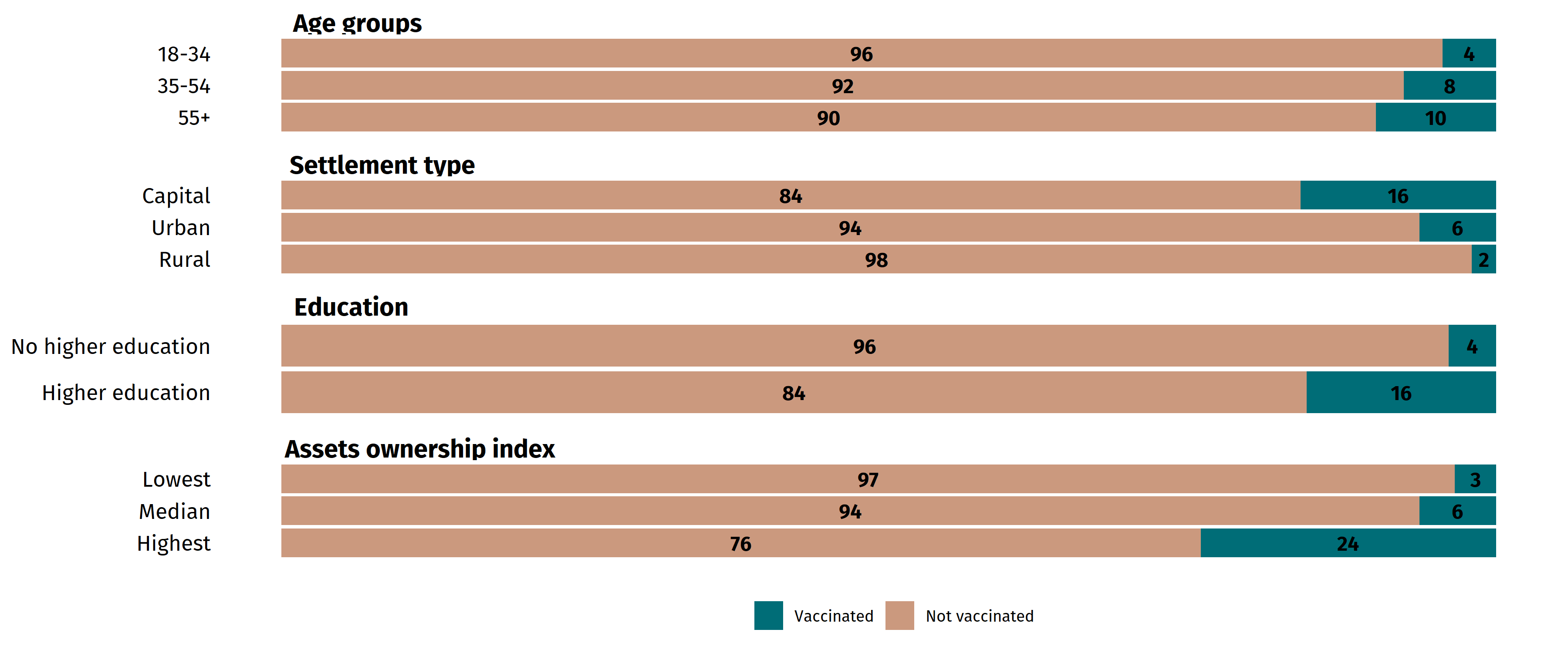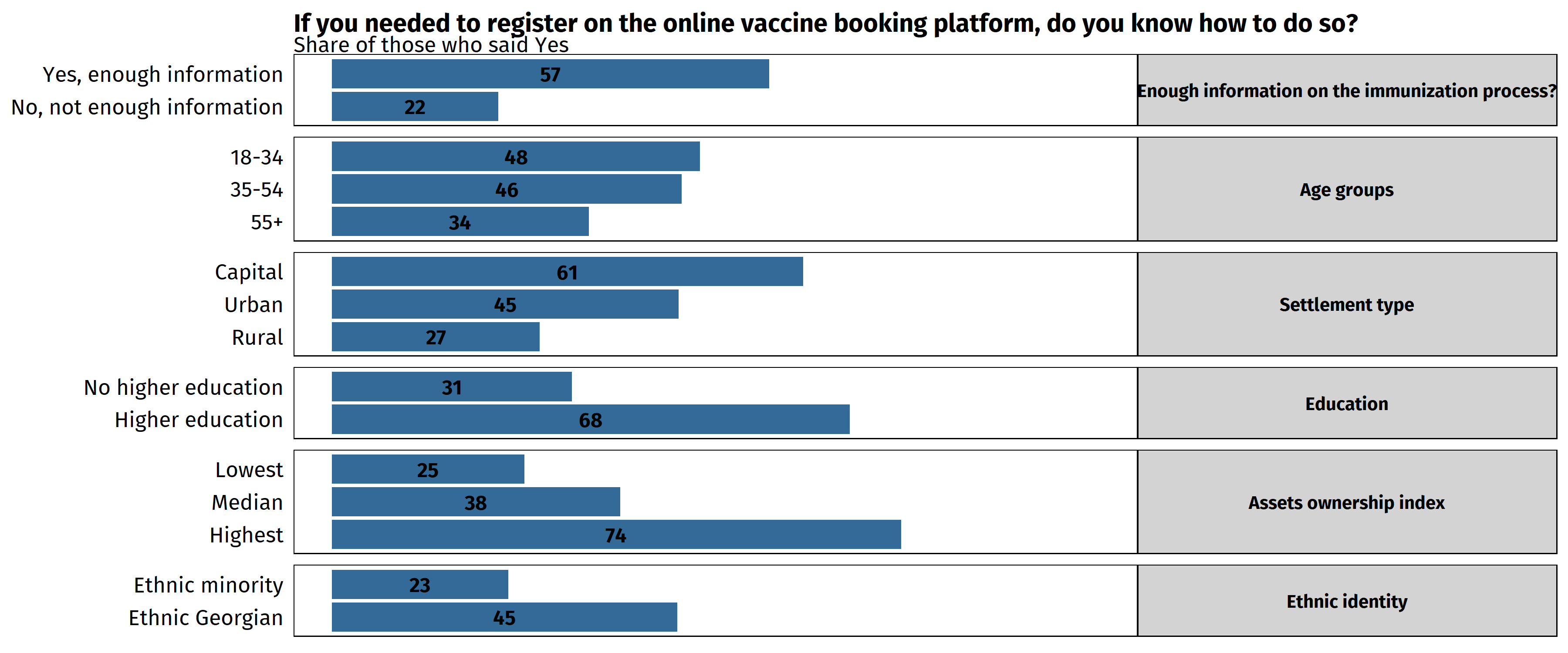
While COVID-19 vaccination is gaining pace in Georgia, data shows that access differs between different groups.
A fast and timely rollout of COVID-19 vaccines is essential for keeping the pandemic at bay. While far-reaching immunisation helps save lives, it also helps with quickly reopening the economy. Nevertheless, not everyone has access to life-saving vaccines. Rich countries have been quick to hoard doses to vaccinate their own populations, leaving poorer states lagging behind.
But unequal access to COVID-19 vaccines within countries also threatens the effective and timely mitigation of the pandemic. Notably, even in countries boasting high rates of vaccine rollout, such as the UK and Israel, COVID-19 vaccines are less accessible to vulnerable and disadvantaged populations. As recent CRRC/NDI data shows, Georgia is no exception.
Despite initial successes in curbing the COVID-19 pandemic, Georgia has done considerably worse in managing infection rates and vaccinations than its neighbours. In the first 10 days of August 2021, the country led global league tables in infection and death rates per 100,000 residents, while simultaneously lagging far behind in immunisation.
As of 25 July 2021, when the last interviews of the CRRC/NDI study were administered, about 7% of Georgians in the survey reported receiving at least one dose of the COVID-19 vaccine. The Georgian government initially prioritised vaccinating older people, so this group is slightly more likely to be inoculated (10%) than those younger than 35 (4%) and between 35 and 54 (8%). More Tbilisi residents (16%) received at least one shot than those from other urban areas (6%) and rural areas (2%).

Notably, a respondent’s socio-economic status predicted whether they had been vaccinated. About 16% of Georgians with a higher education had received at least one dose, as opposed to a mere 4% of those with no higher education.
About a quarter of respondents with the highest socio-economic standing in the country (as measured by an asset ownership index) had received at least one dose, compared to 6% of those with the median number of assets, and 3% of Georgians within the lowest socioeconomic bracket.
A lack of information might contribute to low immunisation rates. The research indicates that those groups who were least likely to be vaccinated also claimed that they did not have enough information on the immunisation process. For instance, only 18% in the highest socio-economic status say that they did not have enough information on the vaccination process in Georgia, compared to almost half of those within the median (48%) and lowest standing on the socio-economic bracket (46%).
Similarly, a larger share of Georgians with no higher education (47%) stated that they did not have enough information on vaccination, than those who had attained higher education (30%).
There was also geographic variation. For example, only one-third of Tbilisians reported not having enough information about Georgia’s immunisation process, compared with 43% in other urban areas and 47% in rural areas.
Not surprisingly, in the days of the initial phase of vaccine rollout, available vaccination time slots in the capital and larger urban areas were filled almost instantaneously. Many Tbilisians even booked available places in vaccination centres outside the capital. This may be because they had better access to information and knowledge of the online booking system: CRRC/NDI data shows that 61% of Tbilisi residents knew how to access online booking system, as opposed to 45% of Georgians from other urban areas and only 27% of rural residents.
Those who reside outside the capital are not the only group put in a disadvantaged position. Other vulnerable groups such as older people, ethnic minorities, poorer Georgians, and those with no higher education were also less likely to have knowledge of how to use the online vaccination booking system. Few among those who claimed not to have enough information on the immunisation process knew how to use the online booking system.

While in the last few weeks, Georgia has accelerated its immunisation efforts, vaccinating more than 20,000 people daily, it is likely that the factors described in this article will continue to affect the timely and equitable access to life-saving vaccines.
Considering the lack of pro-immunisation information provided by the government and the prevalence of anti-vaccine sentiment among many Georgians, it is crucial that information be disseminated explaining the process and benefits of immunisation. As the data above shows, it’s also critical that this is done in a manner that effectively reaches all Georgians.
Differences were identified using two logistic regression model predicting (a) whether the respondent had a COVID-19 vaccine, (b) whether they reported not having enough information on the immunization process in Georgia, and (c) whether the respondent knew how to use online vaccine booking system. Predictors in each of the models included the following social and demographic variables: gender, age, education, settlement type, ethnicity, partisanship, and a durable goods index. A durable goods index is a common proxy measure of a household’s economic status, which counts the number of appliances present in the household. The lowest value corresponds to the score of 0. The median value corresponds to 6, and the highest value of the index is 10. The replication code is available here.
The views expressed in this article are those of the author’s alone and do not in any way reflect the views of CRRC Georgia, or any related entity.






